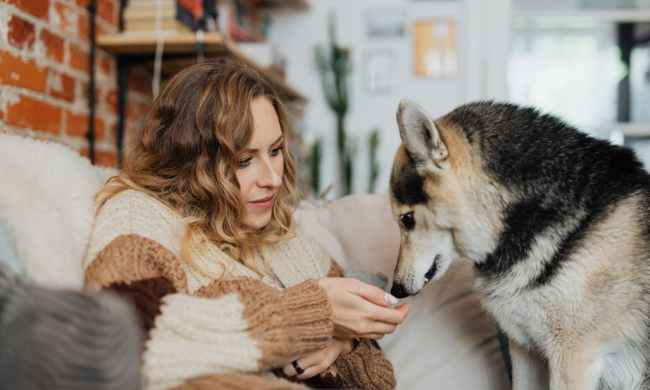Some dogs just love to lick, whether that’s our faces, another dog, the floor, the couch, or themselves. And most of the time, the licking is normal behavior. But what if you notice your dog is excessively licking their paws? Is this a cause for concern or just a normal grooming routine?
According to experts at the American Kennel Club (AKC), occasional paw licking can be perfectly normal for dogs, especially after returning from a walk in the rain or mud. However, if your dog is constantly and frantically licking their paws, there may be cause for concern. So if you’re wondering why dogs lick their paws, we’ll walk you through all the standard reasons behind this quirk.
Why dogs lick their paws
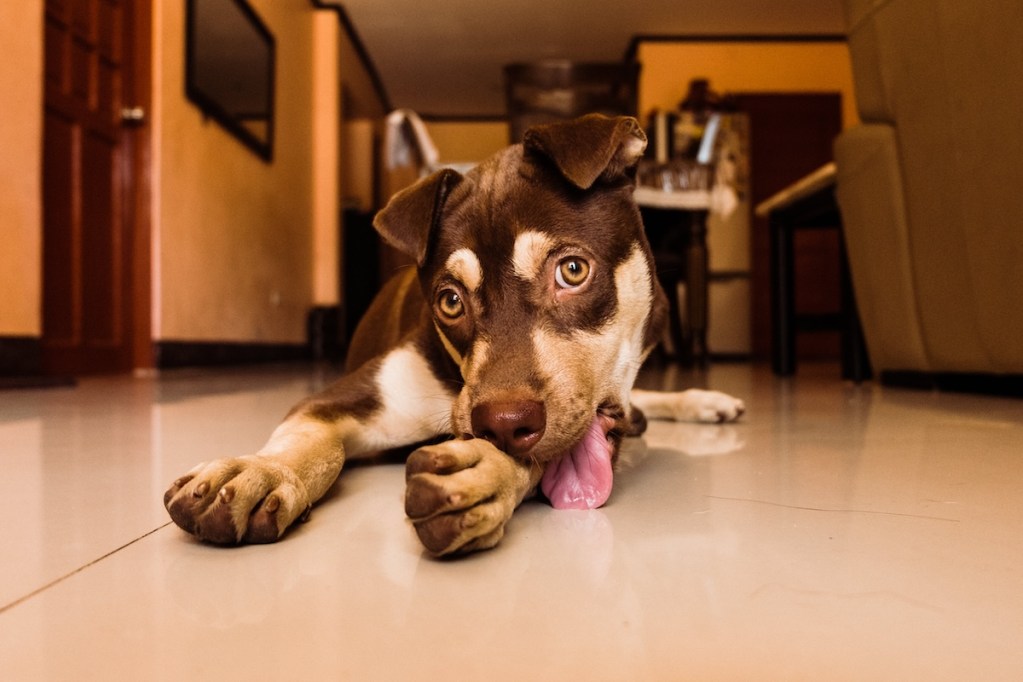
There are many reasons why your dog could be constantly licking or chewing on their paws, including injuries, pain, parasites, skin problems, or allergies. Let’s explore these further.
Allergies
Dog food and treats with ingredients such as dairy, wheat, soy, beef, or chicken can trigger allergic reactions in some dogs. Common symptoms include itchy skin, especially around the ears and paws. If you notice that your pup starts licking his paws after eating certain foods, then allergies may be the cause. Environmental allergies can occur from a negative reaction to chemically treated grass, mold spores, dust mites, or plant pollens. Other symptoms of environmental allergies can include sneezing, watery eyes, and rashes. This condition needs to be treated by a veterinarian.
Common paw injuries
Pay attention to where your dog is licking, as they’ll typically focus on one area if there’s an injury. When this happens during the winter, look for ice balls that may be caught between your pup’s toes. Their pads may also be irritated from walking on salted sidewalks. In the summer, walking on hot pavement can cause pad irritation. Your dog may also have stepped on a thorn or a bee. Most insect bites will cause only minor discomfort, but if you notice swelling or labored breathing in addition to paw licking, you should take your dog to the vet right away.
Parasites
Sometimes, parasites like fleas, ticks, and mites can cause a dog to start licking their paws. Fleas don’t usually end up on a dog’s paws unless the rest of his body is infested. It’s also less likely for mites to be on your dog’s feet, but ticks can certainly end up there. Ticks can be found between the toes or around the paw pads. Be sure to discuss a parasite preventative with your veterinarian to help avoid this problem.
Skin problems
Dogs will seek relief from fungal or bacterial skin infections by constantly licking their paws, which can lead to hot spots. According to experts at PetMD, a medicated shampoo or dog wipe used routinely can help restore the healthy organisms on your dog’s skin. Your veterinarian can prescribe an anti-inflammatory and anti-microbial spray to help treat the hot spots. In the meantime, it’s essential to keep the dog from licking the infected area. In severe cases, the best way to do this is to use an Elizabethan or cone collar.
Pain
According to AKC experts, a dog experiencing pain from arthritis or other foot or leg conditions may lick their paws. Even if the pain is somewhere else in the body, your dog may lick their front paws to try to get some relief. If you can’t find any other reason for the obsessive licking, it’s important to take your dog to a veterinarian to rule out pain.
How do you treat a dog licking their paws?
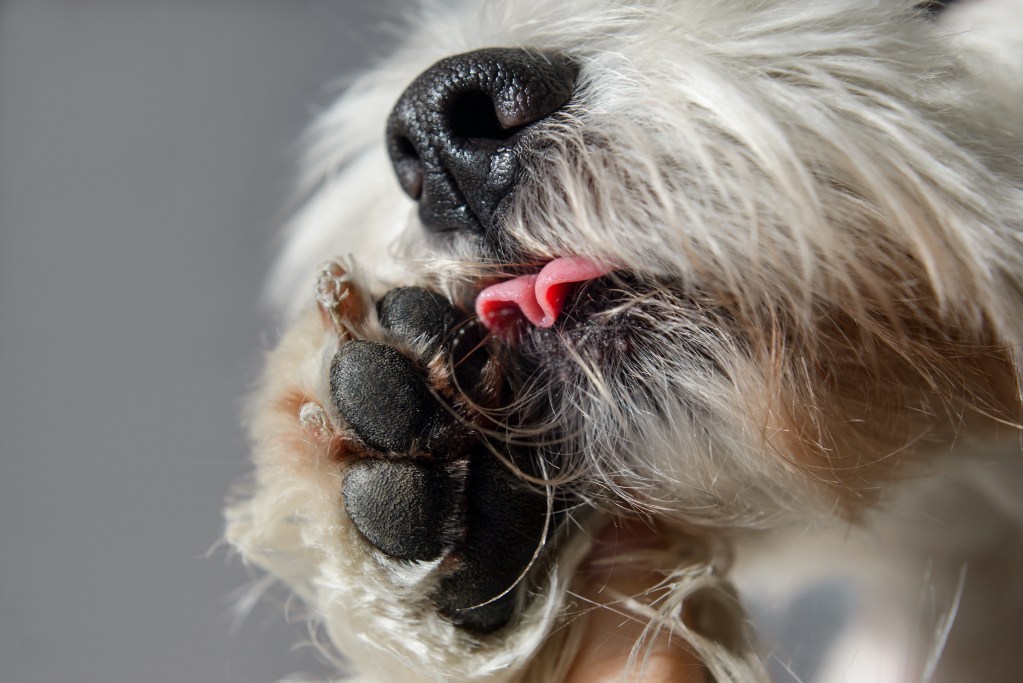
Once you’ve identified the root cause, you’ll want to work with a vet to determine the best course of action. For allergies, this could include over-the-counter medication or cytopoint, a dog allergy shot. Parasites will require treatment for the bug as will a skin condition.
Like all of us, dogs can get dry skin. Regular monthly baths could help cut down on this type of issue. In between cleanings, try out dry shampoo, which acts kind of like a lotion for beasties. After attempting all these tips and counting out a physical issue, you and your vet may conclude that it’s an emotional problem causing all the licking.
Do dogs lick their paws when they’re stressed?
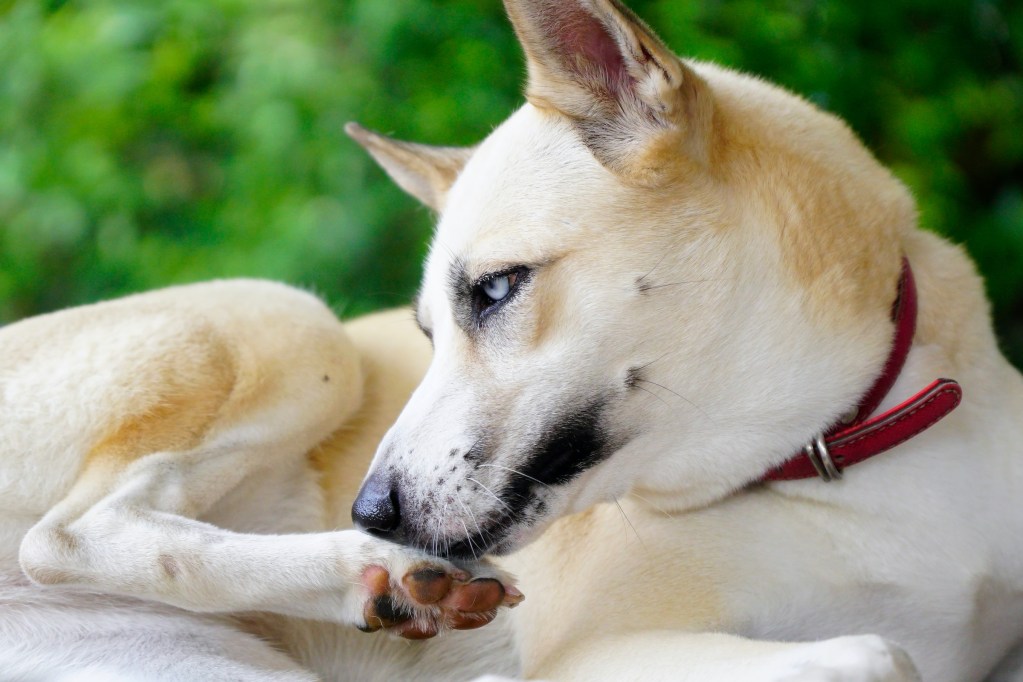
If there’s no obvious sign of distress, your dog may be obsessively licking his paws to relieve stress. You’ll have to do some detective work figure out what’s causing the problem. If your dog is older, they may have canine cognitive dysfunction, also known as canine dementia, which can lead to compulsive paw licking. For other dogs, the stress may be caused by loud noises such as thunder or fireworks. Some anxious dogs respond well to calming products such as CBD oil.
Should I stop my dog from licking their paws?
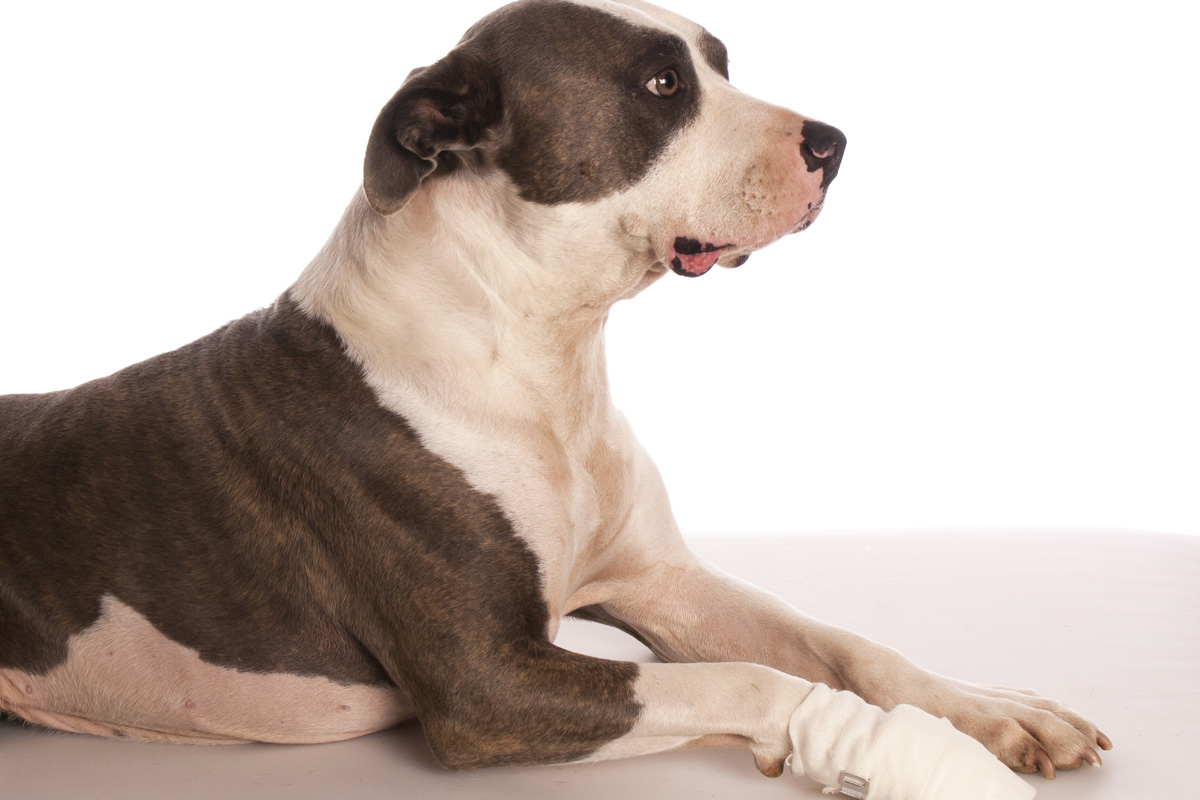
Short sessions of paw licking for grooming purposes are fine. However, veterinary experts say it’s important to stop excessive paw licking as it can cause hot spots and bacterial or yeast infections. Even after you’ve treated the underlying reason for the licking, it still might take time to stop the behavior.
The cone collar is the most restrictive way to stop the licking, but there are other options. Consider covering your dog’s paw with a bandage or investing in socks or boots. For example, Pupteck anti-slip dog socks and Hiado dog boots are both made for indoor use. Spritzing their paws with a product like NaturVet anti-lick paw spray might also work.
Finally, some dogs resort to paw licking out of boredom. When this is the problem, exercising a dog more and incorporating play and training sessions into their daily routine can often help break the habit. However, in severe cases, when paw licking becomes an obsessive-compulsive disorder, you may need help from a trainer to stop the behavior.




